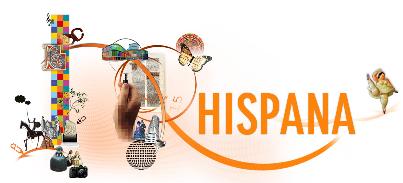Mostrar el registro sencillo del ítem
Society facing death and its implications for end-of-life care: a qualitative study with healthcare professionals (Research Project FFI2016-76927-P-AEI/FEDER, UE)
| dc.contributor.author | Granero-Molina, José | |
| dc.contributor.author | Fernández-Férez, Alba | |
| dc.contributor.author | Fernández-Sola, Cayetano | |
| dc.contributor.author | Ruiz-Fernández, María Dolores | |
| dc.contributor.author | Jiménez-López, Francisca Rosa | |
| dc.contributor.author | López-Rodríguez, María del Mar | |
| dc.contributor.author | Fernández-Medina, Isabel María | |
| dc.contributor.author | Hernández-Padilla, José Manuel | |
| dc.date.accessioned | 2020-10-15T06:25:22Z | |
| dc.date.available | 2020-10-15T06:25:22Z | |
| dc.date.issued | 2020-09-09 | |
| dc.identifier.issn | 1477-030X | |
| dc.identifier.uri | http://hdl.handle.net/10835/8667 | |
| dc.description.abstract | Background/aims: End-of-life care is conditioned by the social opinion towards disease, suffering, death, and life. In Western countries, the process of dying is often considered a taboo; however, the debate around the topic has led to attempts to dignify end-of-life care (regulation of the right to palliative care, advanced directives). The objective of this study was to understand how social patterns about death influence end-of-life palliative care from the perspective of healthcare professionals. Methods: A qualitative study based on grounded theory was designed and carried out between 2017 and 2019. Forty-six professionals (6 doctors, 5 clinical psychologists and 35 nurses) took part in the study, selected through theoretical and convenience sampling. Four focus groups, with a total of 20 participants, and 17 in-depth interviews were conducted. The data were analysed following Grounded Theory procedure with the assistance of ATLAS.ti software (constant comparative analysis, open, axial and selective coding). Results: Data analysis suggests that there may be two opposing social patterns of coping with death. One represents a “Positive way” that includes effort and internal work to make death a part of existence. The other is a “Negative way” that is dominated by a culture of concealment and stubbornness towards death. Participants also conceptualised “Endof-life and death as a care process”, which encompasses “The facilitating role of health professionals” and “Conflicts in decision-making.” Conclusions: Health professionals have identified that socio-cultural patterns towards death influence aspects of the process of end-of-life care such as emergency departments attendance, demand for hospitalisation or management of clinical information. Healthcare professionals take action to facilitate acceptance within the social and family circle, but are faced with conflicts in decision-making when the patient’s closest social and family network put pressure on the professionals or influence the patient’s own free will. | es_ES |
| dc.language.iso | en | es_ES |
| dc.relation | info:eu-repo/grantAgreement/ES/MINECO/FFI2016-76477-P/ES/Samuel Beckett y las traducciones de su obra al español: Una investigación sobre la recepción de un escritor bilingüe/SBTOE | es_ES |
| dc.source | 11th EAPC World Research Congress Online | es_ES |
| dc.subject | Palliative Care and Medicine | es_ES |
| dc.title | Society facing death and its implications for end-of-life care: a qualitative study with healthcare professionals (Research Project FFI2016-76927-P-AEI/FEDER, UE) | es_ES |
| dc.type | info:eu-repo/semantics/report | es_ES |
| dc.rights.accessRights | info:eu-repo/semantics/openAccess | es_ES |
| dc.relation.projectID | /ES/MINECO/FFI2016-76477-P/ | es_ES |









